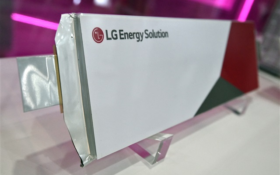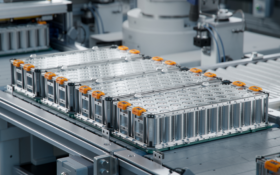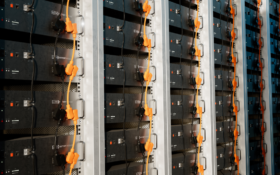A $2.91 billion funding boost toward the production of advanced lithium-ion batteries for electric vehicles and energy storage has been delivered by the U.S. Department of Energy (DOE).
The DOE has issued two notices of intent to ensure the US can produce batteries, as well as the materials that go into them, to “increase economic competitiveness, energy independence, and national security”.
Expected to be made available in the coming months, the cash will help fund battery materials refining and production plants, battery cell and pack manufacturing facilities, and recycling facilities in the US.
U.S. Secretary of Energy Jennifer Granholm, said: “As electric cars and trucks continue to grow in popularity within the United States and around the world, we must seize the chance to make advanced batteries — the heart of this growing industry — right here at home.
“With funding from Bipartisan Infrastructure Law, we’re making it possible to establish a thriving battery supply chain in the United States.”
President Joe Biden’s Bipartisan Infrastructure Law has allocated nearly $7 billion to strengthen the US battery supply chain, which includes producing and recycling critical minerals without new mining, and sourcing materials for domestic manufacturing.
Funding from the Bipartisan Infrastructure Law will allow DOE to support the creation of new, retrofitted, and expanded domestic facilities for battery recycling and the production of battery materials, cell components, and battery manufacturing.
The funding will also support research, development, and demonstration of second-life applications for batteries once used to power EVs, as well as new processes for recycling, reclaiming, and adding materials back into the battery supply chain.
In the same week as the funding announcement, The DOE released a $140 million Request for Information (RFI) for the design, construction and operation of a new facility for the full-scale extraction of rare earth element (REE) and critical minerals (CM) and separation refinery using “unconventional resources”.
DOE 100 day battery review
With the global lithium-ion battery market expected to grow rapidly over the next decade, the DOE wants to ensure the US is prepared for the demand.
Among its goals are the “responsible and sustainable” sourcing of domestic lithium-ion battery materials such as lithium, cobalt, nickel, and graphite.
Last June the DOE published a 100-day review of the large-capacity-battery supply chain, pursuant to Executive Order 14017, America’s Supply Chains.
The review recommended establishing domestic production and processing capabilities for critical materials to support a fully domestic end-to-end battery supply chain.
The National Blueprint for Lithium Batteries, guidance was released last year by the Federal Consortium for Advanced Batteries and led by DOE alongside the Departments of Defense, Commerce, and State.
The blueprint details a path to equitably ensuring a domestic battery supply and accelerating the development of a robust and secure domestic industrial base by 2030.
Senators welcome battery funding
Maine U.S. Senators Susan Collins and Angus King—a member of the Senate Energy and Natural Resources Committee— welcomed the investment.
Senator Collins was part of the core group of 10 Senators who negotiated the text of the bipartisan infrastructure law.
Senators Collins and King both worked to negotiate and pass the infrastructure package that is providing the funds.
Senator King said: “Improvements to battery technologies are key to unlocking our clean energy future. When we can efficiently store and distribute renewable energy we will open a whole new world of possibilities for our economy and our environment.”












